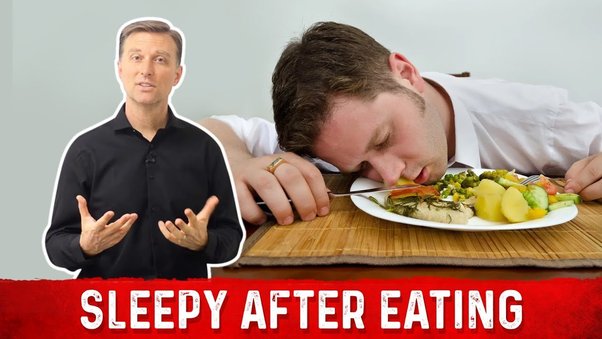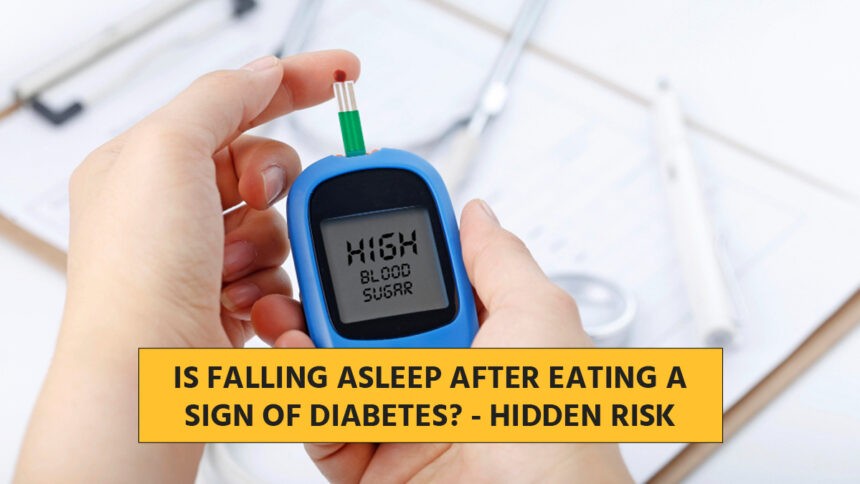Have you ever experienced the irresistible urge to doze off after a hearty meal? It’s a common phenomenon, often dismissed as the body’s way of digesting food. However, for some individuals, particularly those with diabetes, falling asleep after eating might be a sign of an underlying health issue.
Understanding Diabetes
Before delving into the relationship between falling asleep after eating and diabetes, let’s first understand what diabetes is. Diabetes is a chronic condition characterized by high levels of glucose (sugar) in the blood. This occurs either because the body doesn’t produce enough insulin (Type 1 diabetes) or because the body’s cells don’t respond properly to insulin (Type 2 diabetes).
One common symptom experienced by individuals with diabetes is fatigue. Diabetes-related fatigue can significantly impact daily life, affecting productivity and overall well-being.
Is Falling Asleep After Eating a Sign of Diabetes?
Is Falling Asleep After Eating a Sign of Diabetes? This question arises because of a phenomenon known as postprandial somnolence, or the tendency to feel sleepy after consuming a meal. While it’s normal to feel a bit sluggish after eating, excessive sleepiness could be a red flag, especially for those with diabetes.
Several studies have explored the connection between postprandial somnolence and diabetes. Research suggests that fluctuations in blood sugar levels following a meal can trigger changes in hormone levels, including insulin and melatonin, which regulate sleep-wake cycles. In individuals with diabetes, these fluctuations may be more pronounced, leading to increased drowsiness after eating.
How to Know if Sleepiness is Linked to Diabetes?
Is Falling Asleep After Eating a Sign of Diabetes? If you find yourself consistently feeling excessively sleepy after meals, it’s essential to consider whether diabetes could be a contributing factor. Look out for other symptoms of diabetes, such as increased thirst, frequent urination, unexplained weight loss, and blurred vision.
To determine if sleepiness is linked to diabetes, consult with a healthcare professional. They may recommend diagnostic tests, such as fasting blood sugar tests, oral glucose tolerance tests, or HbA1c tests, to assess your blood sugar levels and diagnose diabetes.
What to do if Falling Asleep After Eating is a Sign of Diabetes?
If falling asleep after eating is indeed a sign of diabetes, it’s crucial to take action promptly. Seek medical advice from a healthcare provider who can guide managing your condition. Diabetes treatment typically involves lifestyle modifications, such as adopting a healthy diet, engaging in regular exercise, monitoring blood sugar levels, and possibly taking medication or insulin therapy.
Coping with Diabetes-Related Fatigue
Managing diabetes-related fatigue requires a comprehensive approach. In addition to medical treatment, there are several strategies you can incorporate into your daily routine to combat fatigue:
- Prioritize sleep: Aim for seven to eight hours of quality sleep each night.
- Maintain a balanced diet: Eat regular, nutritious meals and monitor carbohydrate intake to stabilize blood sugar levels.
- Stay active: Engage in regular physical activity to boost energy levels and improve overall health.
- Manage stress: Practice relaxation techniques such as deep breathing, meditation, or yoga to reduce stress and fatigue.
- Seek support: Connect with healthcare professionals, support groups, or loved ones who can provide guidance and encouragement on managing diabetes-related fatigue.

Other Reasons for Being Sleepy After Eating
While diabetes is a significant factor to consider, there are also other reasons why you might feel sleepy after eating. These include:
- Food choices: Consuming high-carbohydrate or high-fat meals can lead to postprandial drowsiness.
- Portion size: Overeating can overwhelm the digestive system, leading to fatigue.
- Digestive disorders: Conditions such as gastroesophageal reflux disease (GERD) or irritable bowel syndrome (IBS) can cause discomfort and fatigue after eating.
- Food sensitivities: Certain foods or ingredients may trigger drowsiness in sensitive individuals.
Tips to Avoid Sleepiness After Eating
Incorporating Light Physical Activity
Engaging in light physical activity, such as taking a short walk after meals, can aid in digestion and help prevent postprandial drowsiness. Movement stimulates blood flow and promotes the release of energy, keeping you feeling more alert and awake after eating.
Conclusion
In conclusion, falling asleep after eating can be a sign of various underlying factors, including diabetes. If you find yourself experiencing excessive sleepiness after meals, especially accompanied by other symptoms of diabetes, it’s essential to consult with a healthcare professional for proper evaluation and management. By addressing the root cause and implementing lifestyle changes, you can improve your overall health and well-being.
Is Falling Asleep After Eating a Sign of Diabetes? Remember, early detection and intervention are key to effectively managing diabetes and associated symptoms.
